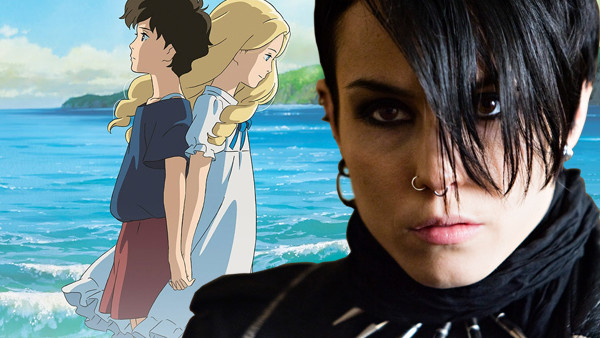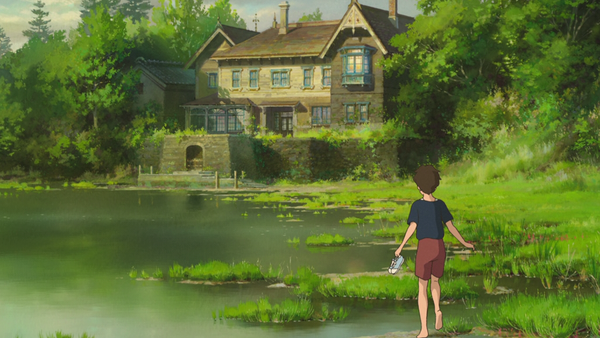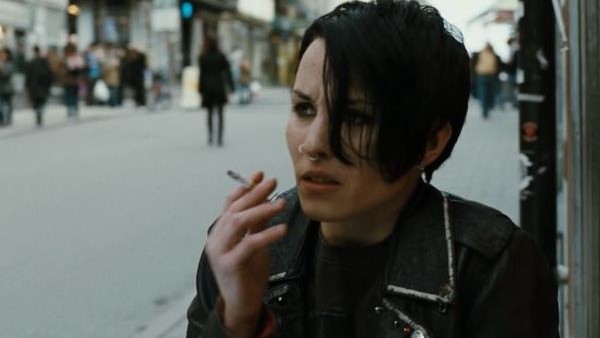Should We Dub Foreign Movies In English? - Today's Debate
Say goodbye to subtitles.

The other night I went to see the latest (and possibly final) film from Studio Ghibli, When Marnie Was There*, which has finally got its UK release. At the box office, I was given a very welcome choice: English or Japanese. That's right, the film was screening in both its native version (with English subtitles) and a dubbed version with A-List talent. This wasn't one of London's many, great independent or arthouse cinemas either - it was the local multiplex down the road.
Without pausing I went for the Japanese version (that it was the next showing had nothing to do with it - I'd have waited); I'm sure Hailee Steinfeld and Geena Davis do an excellent job, but it surely can't compare to that with which the film was first released. Although, if I'm making the assumption that the Japanese version is the auteur's vision, then why was there a dubbed version in the first place?
The answer is, as is often the key talking point when discussing appeal of foreign-language films, subtitles. As a culture we either fear reading in the cinema or assume the majority do, ostracising most foreign language films to smaller cinemas and, for the few that make it through, forcing box office workers to remind every punter their Friday night movie isn't in their native tongue, lest they storm out twenty minutes laster and demand a refund.
And, while any problems are incredibly unfounded (you typically forget you're reading less than five minutes into the film), there is a deep-set prejudice against subtitled movies. It's no coincidence that the only French film to win Best Picture was a silent movie that made a joke about accents at the end.

So that's the basic motivation for why we'd dub a movie, but in that case why not do it more often? After all, it's veru common in non-English speaking territories, where major Hollywood movies are typically offered with regional dubs; in many of these countries a dubbing is just an accepted fact of cinema (there's even been recent faux-controversy in Russia about Captain America: Civil War's young-sounding Spider-Man). It's only really in the English-speaking world where we take umbrage with it, which is hardly surprising; English-language blockbusters are global, so there's less call for it and we thus have a bigger problem with the lip-sync (it's like when a DVD player gets a little out-of-whack, but here not a single word matches up).
There's also the value of a rerecord. Getting a whole cast of actors in is going to cost, as will the sound remix, which severely limits the type of movies that will get the treatment. With Ghibli there's a noticeable financial advantage, where the U-rated animations are able to play to a much younger child audience (even if the themes of Marnie would likely go over a lot of youngster's heads). This has been the case with many of the studio's previous films, and their dubs are consistently excellent (another major concern, as with subtitling, is a poor translation, and here you also have the factor of performance).

The only other distinct example I can think of a recent English dub is the Swedish The Girl With The Dragon Tattoo. When that hit in 2009, the distributor were keen to capitalise on the hype bubble around Steig Larsson's novels and really pushed an English language redo. By all accounts it's a lesser version of the film, but the subsequent box office success shows that in cases it can work.
Not that that would be true of any old movie. Would recent foreign language standouts like Our Little Sister or The Assassin have done better if they were anglicised? The fact remains that, due to its artistic distance from Hollywood, foreign cinema tends to produce more independently-inclined films that fall in the same trap as English non-blockbusters, box office-wise. The only recent film that could have done better may have been Son Of Saul, by all accounts a staggering achievement, but even that may be too artsy to break out properly.
Maybe that's why we don't dub as much - there's few high-demand foreign-language films where it's warranted (at least from a mainstream perspective), and those who do want to see them are of the inclination that having someone meddle with the voices tarnishes the art, so would go for subtitles anyway. But are we making too many assumptions here; assuming people won't come out for a certain movie and that people are really irked by dubbing? Maybe there's a whole audience who would go see foreign movies in there were English voices over the top.
What do you think? Is finding umbrage with a more accessible version needless? Should we start dubbing to get a wider range of movies out there? Or is it a thankless task that will be met with a resounding shrug. Join the debate down in the comments.
*When Marnie Was There is a brilliant movie, btw, ... and you should definitely check it out regardless of version.